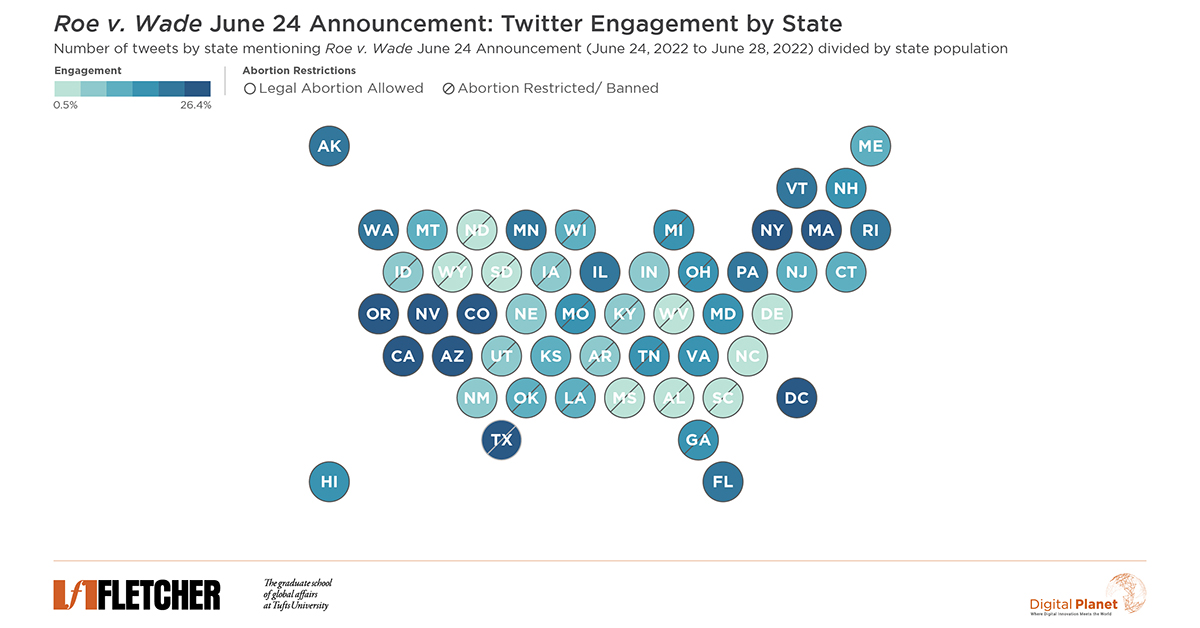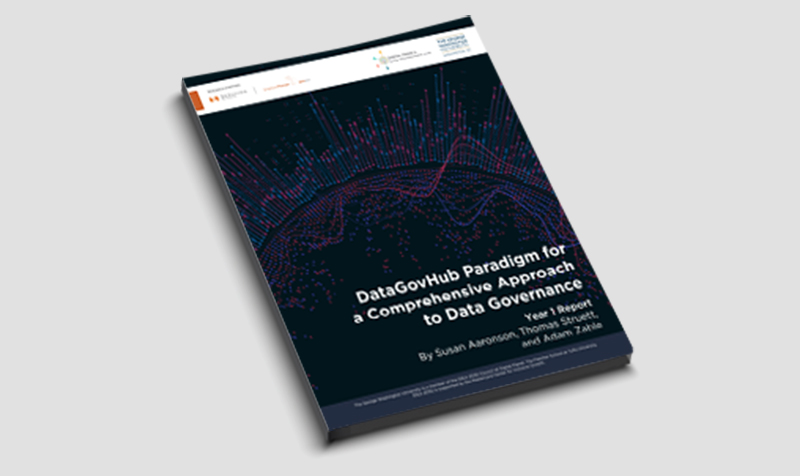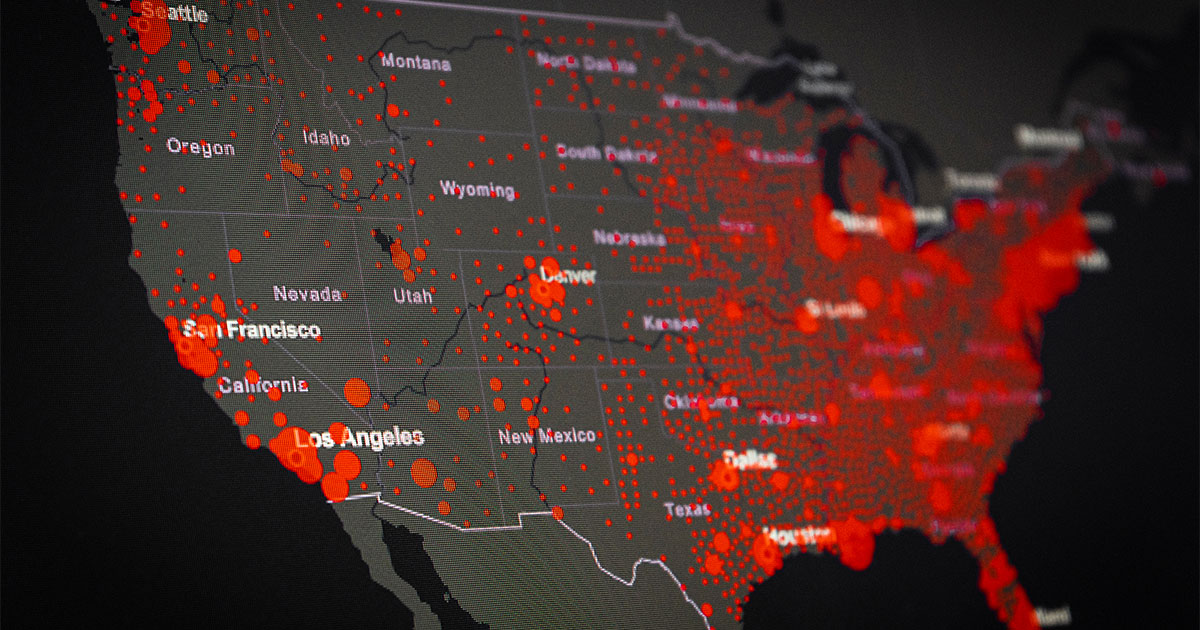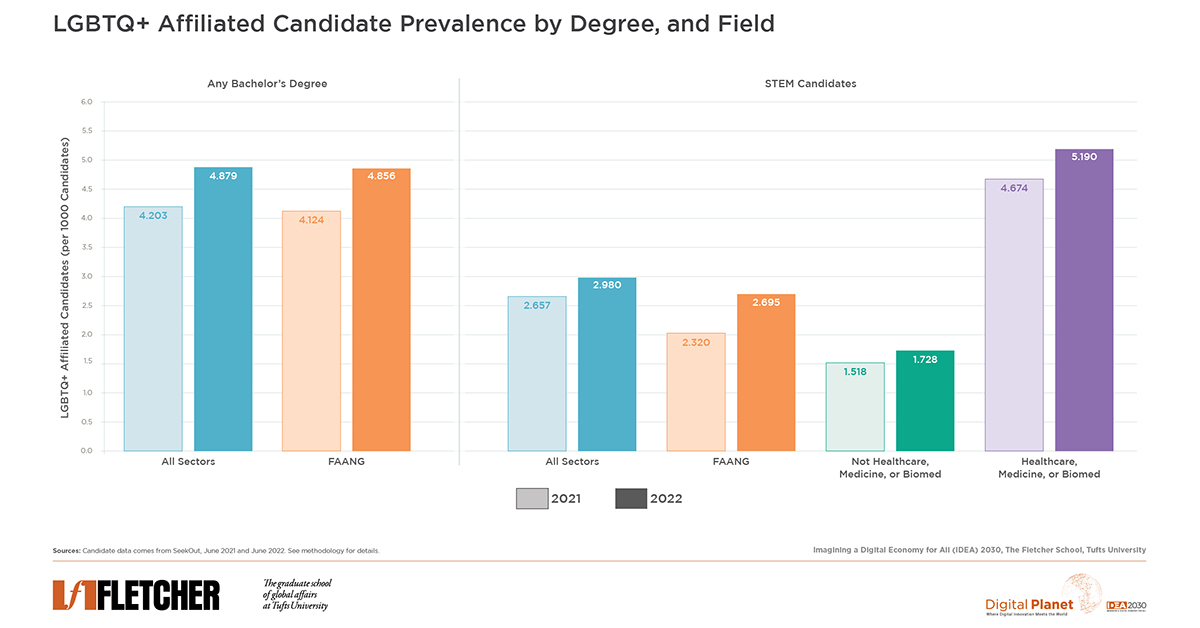On January 22, 1973, Time magazine broke the news: the Supreme Court was set to legalize abortion in America. A Supreme Court clerk had leaked the information to the magazine, on the condition that it not be published until the ruling was made public by the Court. The Court’s announcement was delayed, and the Time piece was on newsstands hours before the decision was announced by the Court.
Nearly 50 years later, on May 2, 2022, Politico published a leaked draft majority opinion written by Samuel Alito, which strongly repudiated the 1973 decision. The reaction on Twitter was swift—and decidedly negative.
On June 24th, the Supreme Court made the official announcement: they overturned Roe v. Wade, ending the constitutional right to abortion in the United States. The following analysis follows the trajectory of emotions among Twitter users in the US as events unfolded.
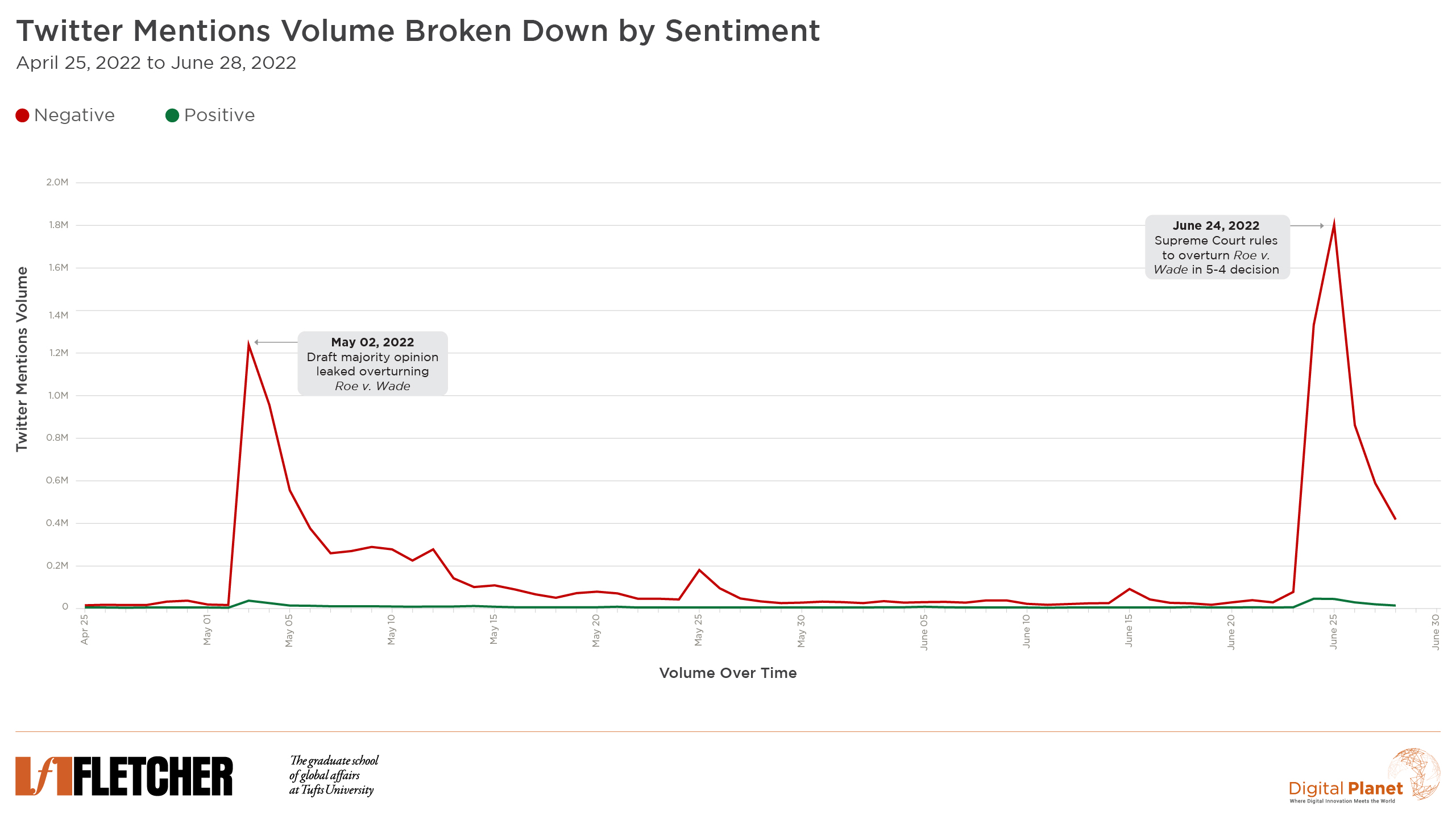
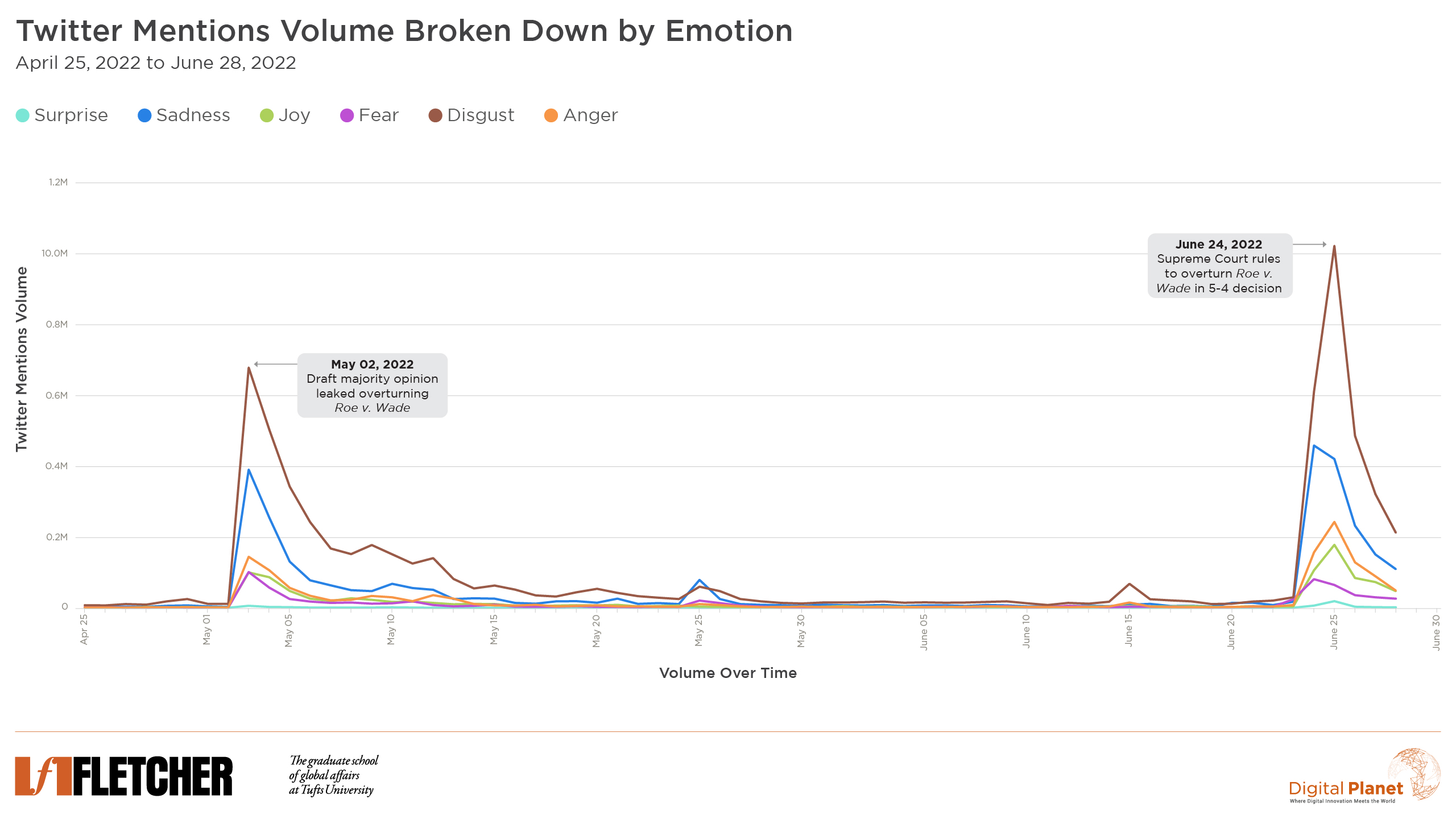
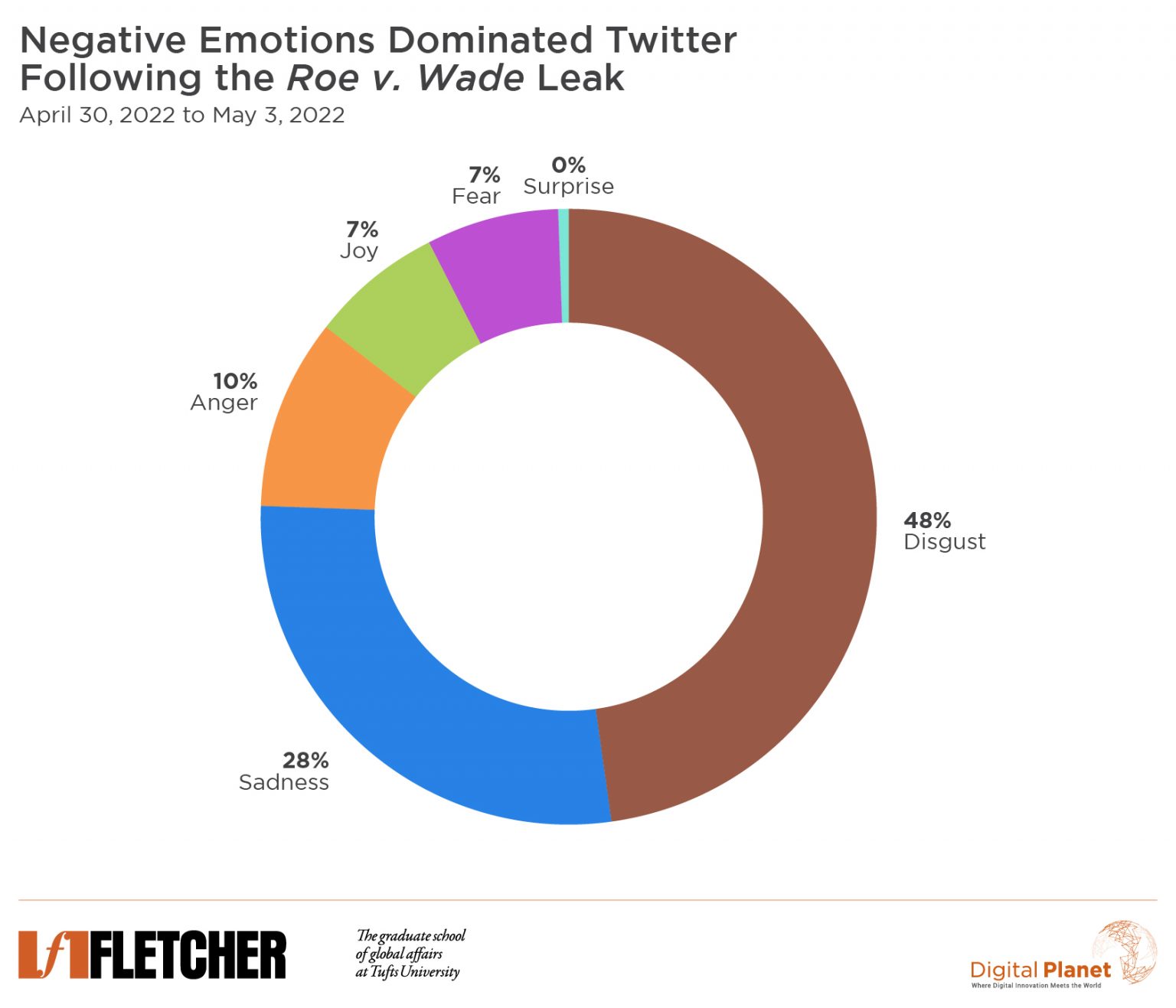
Men and women reacted similarly: disgust and sadness accounted for over ¾ of expressed emotions.


Reactions were seen across the country, but some states (mostly left-leaning) showed more engagement on Twitter than others.
Following the June 22 announcement, Delaware had the highest ratio of negative to positive tweets, while West Virginia had the lowest ratio. On average, blue states had a higher ratio of negative tweets than red states.


While bluer states tended to show a higher level of engagement, the reactions were negative across all 50 states.


Read more about our methodology here.
Digital Pulse is a platform for measuring and understanding the public’s evolving sentiments and responses to breaking events. Conceived by Digital Planet as part of the IDEA 2030 initiative, Digital Pulse harnesses unstructured data to gauge the reactions of various online communities across the globe to key events. Data gathering and analysis were conducted by Ripple Research, an IDEA 2030 affiliate, under the direction and guidance of the Digital Planet team.
What patterns and insights do you see in these charts? Share your thoughts with us on Twitter @dgtl_planet
Interested in learning more? Subscribe to our monthly newsletter Dispatches from the Digital Planet to stay up to date with our latest research and analysis.


